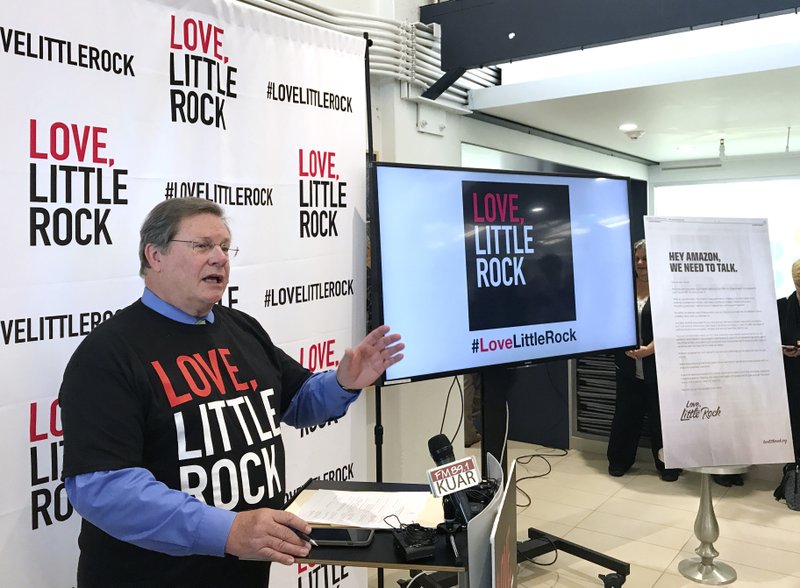Amazon, in fact, did notice Little Rock's "Dear John" letter last month to the online retailing giant, detailing the reasons why the city wouldn't be among those vying for its second headquarters.
The company was among several leading companies recorded as visiting the lovelittlerock.org website created as part of the "Love, Little Rock" branding campaign and built around the city's letter published in a Washington Post ad, according to Millie Ward, president of the Little Rock advertising firm Stone Ward, which helped put together the campaign. The newspaper is owned by Amazon founder Jeff Bezos.
Other companies accessing the website included such notables as Apple, the computer and mobile-phone giant; Boeing, the aircraft manufacturer; Dell, another computer company; Johnson & Johnson, a global company which produces and sells consumer and pharmaceutical products and medical devices; Ford Motor Co. and General Motors, two leading vehicle manufacturers; and three major accounting firms: PwC, KPMG and Deloitte, the latter two of which have divisions focusing on site selection for companies wanting to expand operations.
To be sure, none of those companies have come knocking as a result of the campaign, according to Jay Chesshir, president and chief executive officer of the Greater Little Rock Chamber of Commerce.
"Not yet," he said. "We obviously have people looking at us. In terms of already being here, a lot of times in terms of an economic development project process, we're talking sometimes months and, some, even years. And so, unfortunately, not yet that we know of."
But Chesshir, Ward and Little Rock Mayor Stodola all pronounced the campaign a success during an hourlong discussion Monday night of the ideas that led to the "Love, Little Rock" campaign. The session, part of the Clinton School of Public Service speakers series held at the school's Sturgis Hall, offered an inside look at the "breakup" with Amazon.
"Because of the activity that has surrounded the site selection consultant community and the activity to the website, we believe very strongly there will be activity that will come," Chesshir said. "It was just a unique way to capture people's attention to look at a place that they maybe hadn't looked at in a long time or ever before."
The branding campaign was unveiled Oct. 19, the deadline for cities interested in landing Amazon's second headquarters, which the company said would be an investment worth $5 billion and employ 50,000 people. A total of 238 cities applied.
Little Rock considered being the 239th, but the three principals in the campaign along with a 25-member committee quickly decided that the state's capital didn't meet the criteria the company demanded in terms of population and other metrics.
Jonathan Semans, an executive with CDI Contractors, was credited with the idea of going against the grain, which the other committee members surprisingly embraced.
Stone Ward volunteers spent a Sunday afternoon developing the letter and other parts of the campaign, which included flying an aerial banner over Seattle, Amazon's headquarters, that said, "Hey, Amazon, it's not you, it's us."
Chesshir also had to get the approval of the chamber's executive committee not only for the campaign but to spend the money, an amount he declined to disclose again Monday night. An executive with The Washington Post told the Arkansas Democrat-Gazette that a typical full-page ad in the Post costs about $41,000.
Surprise was key, the three principals said in a response to a question from Skip Rutherford, the school's dean who moderated the discussion. Rutherford noted that he learned of the full-page ad in the Post from a reporter from The New York Times.
"Part of the strategy was to hijack Amazon's day," Ward said.
"We were afraid someone would steal the idea, quite frankly," Stodola added.
Chesshir said keeping the campaign secret allowed only two cities to be mentioned when all is said and done:
"The city that wins, and Little Rock," he said.
Metro on 11/07/2017
